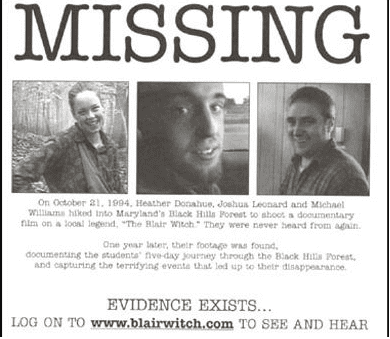Transmedia: A Filmmakers Foe or Ally?
by Julian Cheevers on June 20, 2013 in Transmedia
There’s increasingly a lot of talk about Transmedia storytelling; the idea of taking pieces of a story and systematically putting them across different media touch points for the purposes of creating a unified and coordinated entertainment experience. But why is Transmedia storytelling important for independent filmmakers in particular?
The digital revolution has helped shift the power of decision when it comes to what content people get to consume. No longer do you have to leave your seat and walk to the shops to choose from the latest big release Hollywood DVDs, you can now access over a 100 million videos online through any number of devices from the comfort of your toilet. And I think probably a fair few of us do.
Any niche idea can find its way to any niche audience. The Internet means a storyteller and story consumer can have a direct relationship. This is the essence of independence and it’s a major shift for any independent artist.
But there’s a catch, of course. What you get for free in terms of digital platforms, is available to all; so you have to work hard to earn your audience’s attention. Your story is not just competing with other independent films, it’s competing with an Internet full of distractions. And with small promotional budgets to support your independent film, you need to make everything work harder.
Transmedia storytelling is a valuable approach because it wraps your story around the shoulders of your audience and hooks them in whenever and wherever you come into contact with them. But to do this means broadening your role from maker of film to Transmedia storyteller, to think of your story as something living beyond a locked screen and a single timeframe.
A GREAT STORY IS ALWAYS THE ROOT CAUSE
The good news: The most important factor to success starts with a great story. A strong emotional narrative, whether it induces laughter, tears or fears, is at the heart of any connection, conversation or share—so nothing changes there.
TRANSMEDIA SHOULDN’T FEEL LIKE MARKETING, IT SHOULD FEEL LIKE GOOD STORYTELLING
Transmedia has an element of marketing to it at times, but when done well it’s simply good storytelling, an extension of the film experience. The more it’s thought about as integral to the film, the less it will feel like a promotional afterthought. And as the creative force behind their film, the filmmaker is the best person to create it.
But using Transmedia storytelling to extend your reach doesn’t need to be complex or expensive necessarily. You could do something as simple as The Blair Witch Project, starting the story the moment your audience comes into contact with it.
THERE ARE OPPORTUNITIES WITH YOUR AUDIENCE BEYOND THE THEATER
Re-consider the whole notion of your film as having to just be watched at the theater or TV, to one that can be experienced on your computer.
It gives you the opportunity to make your film more personal. To make it feel like you’re talking directly to your audience one on one.
Maybe even think about allowing your audience to collaborate with part of your project. Understandably, the thought of a stranger touching your craft is often met with dread, but it’s up to your creativity to do it in a way that is powerful. It might not be so bad, the audience that falls in love with your project probably aligns with your tastes…
You could experiment with interactions to enable your audience to “insomnia” live through your story first hand.
Or even a location-based experience that stirs the imagination so much that everyone can’t help but talk about it.
Transmedia is still in it’s infancy, but the definition of it that I’d like to go with is that it takes your story beyond the confinements of the traditional film to earn a relationship and build an audience that has a million options. Depending on what you do, you may need to collaborate with people with different skill sets to make it happen, but it starts with a shift in mindset about what your creative canvas is. I believe that the independent filmmakers who do so will find the most rewarding creative freedom.







